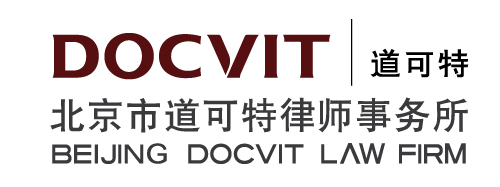When seeking to avoid liability for damages arising from work practices, state-owned enterprises (SOEs) often fall back on three basic excuses: Collective decision-making; following a superior’s orders; and having a non-professional background. The underlying logic of all three excuses is the same – that the causes of adverse consequences at work are beyond their control. But are these three excuses really applicable?
Collective decision-making

Partner
DOCVIT Law Firm
It is usually difficult to argue “collective decision-making” as an excuse for exemption of liability. The provisions are clear: If the decision-making or implementation of illegal business investment in the form of collective decision-making causes material adverse consequences, in addition to the collective responsibility, the members concerned must bear individual liability. Usually, only by expressing objections or reservations to erroneous decisions during collective decision-making can one use it as a valid excuse.
In one case of illegal operation by SOE personnel, the enterprise signed a joint bidding agreement with a private company, which did not formally participate in the joint bidding. Instead, one person, named Zheng, borrowed the official seal of the private company and signed a deal with the SOE valued at 1.7% of the winning bid amount, making it in essence an “intermediary” agreement.
In this case, the project manager of the SOE, named Shen, knew that the real purpose of the agreement signed with Zheng was not to make a joint bid, but to help Zheng by paying a substantial intermediary fee that he would use to win the bid via bribery. Subsequently, Shen paid tens of millions of renminbi to Zheng’s company as an intermediary fee. Shen’s defence was that in the process of joint bidding, he exercised his power according to the prescribed authority and procedures, that the above-mentioned scheme was carried out following instructions and collective decisions, and that he did not abuse his power.
The court held that although the joint bidding agreement was executed with the consent of the company’s leadership after collective discussion, or with the acquiescence of the group company, the winning bid was illegal, the joint bidding agreement was inevitably illegal, and thus the intermediary fee should not have been paid. Shen knowingly committed illegal acts that led to the improper loss of state-owned assets valued in the tens of millions of renminbi. As the main person in charge with decision-making capacity, the court held that Shen did abuse his power.
Just following orders

Partner
DOCVIT Law Firm
This excuse for exemption of liability should be further distinguished. If the superior’s decision or order is obviously illegal, the person implementing it shall bear a corresponding responsibility according to the law; even if that person had recommended the decision or order be amended or revoked, it does not constitute an excuse for exemption.
In the case of non-obvious illegal activities, it can constitute an excuse for exemption if implementation is carried out after the opinions of correction or revocation were raised and rejected, or if the superior demands immediate implementation. Therefore, the key issue lies in the identification and definition of “obviously illegal” matters, as well as the procedures for recommending corrections and revocations in the case of non-obvious illegal activities.
Let us take the case of holding Huangshi Economic and Technological Development Zone (HETDZ), accountable for illegal borrowing, as an example. In August 2015, after discussion at the director’s office meeting of the HETDZ administrative committee, the HETDZ finance bureau illegally borrowed RMB110 million (USD17.4 million) from Hubei Jinpai Investment at an annual interest rate of 10.2%. In 2016, the loan was repaid using local government funds.
The Huangshi municipal government handled the issue as follows: Kong, then the director of the HETDZ administrative committee, moved and convened a meeting that decided on the illegal borrowing, and approved the financial department to go ahead with the illegal borrowing.
Therefore, Kong was held directly responsible, dismissed from public office and transferred to judicial authorities. Huang and Wang, director and deputy director of the finance bureau, implemented obviously illegal decisions and, although they had raised objections, were also held directly responsible and subject to administrative warnings.
Non-professional background
Some work at SOEs may require specialist skills outside the scope of most personnel. In other words, personnel may need multi-background professional knowledge to performance a function. Suppose there is a loss of state-owned assets in a job requiring compound professional knowledge; how do we judge the employee’s performance and related responsibilities? Can having a non-professional background be used as an excuse for exemption of liability?
The authors believe that we should judge depending on different positions and responsibilities. Usually, with the modern high level of division of labour, it is difficult for us to ask a single person to be responsible for all professional issues involved in a project.
However, for personnel serving as directors, in view of the duty of diligence imposed by the Company Law, it is difficult for them to be exempted from liability on the grounds of lacking a degree in finance, when problems such as financial data distortion occur. For example, in the administrative litigation case between Hu Xiaoyong and the China Securities Regulatory Commission (CSRC), Xintai Electric provided false financial records to secure issuance approval. Hu, a director of Xintai Electric, signed the relevant resolutions of the board of directors and the prospectus to “warrant that the contents of the prospectus are true, accurate and complete”.

The CSRC made an administrative penalty decision against Hu. Hu argued that he had fulfilled his duty of diligence on the grounds that he, as an external director, did not manage the company’s finance, did not have a professional background in finance and accounting, was not a member of the audit committee and relied on the financial reports issued by professional audit agencies.
The court held that if Hu believed that he had fulfilled his duty of diligence, he should reasonably explain his performance of duties in good faith, reasonably and prudently, and provide corresponding evidence. If Hu’s defence was accepted, “the directors’ duty of diligence set out in the Company Law will become all but meaningless”.
Wang Yong and Zhao Shuyan are partners at DOCVIT Law Firm

DOCVIT Law Firm
56/F Fortune Financial Center
No.5 East Third Ring MiddleRoad
Chaoyang District, Beijing 100020, China
Tel: +86 10 8586 1018
Fax: +86 10 8586 3605-8006
E-mail:





















